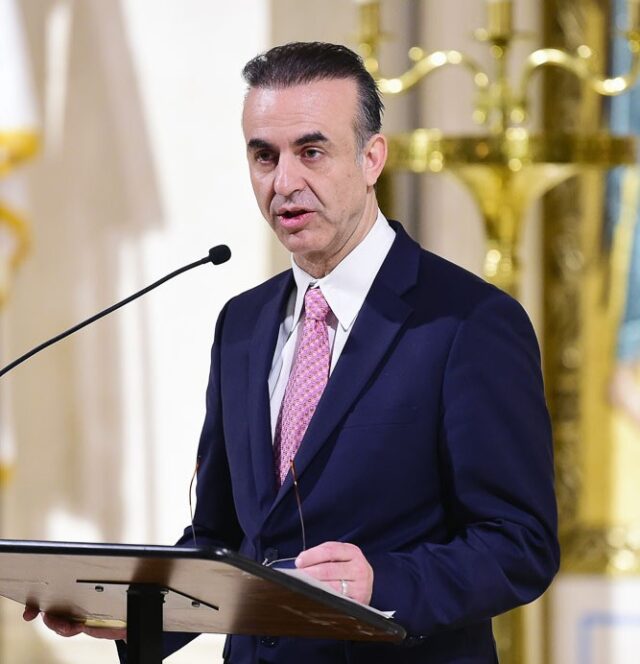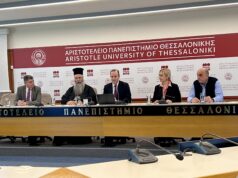by Dr. Anastasios Koularmanis *
We hear it all the time: “The Greek language is dying”. But that isn’t true. What is dying, quietly and almost imperceptibly, is our connection to it. The fluency, the daily use, the lived experience of Greek — these are slipping away from our children and grandchildren.
After twenty-five years in Greek education and a dissertation on its history, I’ve seen firsthand how this is happening. Many scholars have written about Greek education, but few have worked in our schools or held positions within the system. Without that experience, it’s impossible to fully understand what is happening behind the scenes, both administratively and politically.
Much has changed in our families. In the early generations, a mother or yiayia at home meant children were surrounded by Greek. Speaking the language was essential. Today, most mothers work, grandmothers aren’t primary caregivers, and children often spend their early years in English-speaking daycares. Trips to Greece, once invaluable for language immersion, are less frequent, and even there, English dominates.
Neighborhoods have shifted too. Greeks once lived in close-knit communities, attended Greek churches, sent kids to Greek schools, and gathered at kafeneia. Today, families have moved on, leaving empty churches and closed schools behind. Mixed marriages, while enriching, also raise difficult choices: which faith to follow, which school to attend — all affecting language exposure.
We have also leaned too heavily on the Church as the sole language provider. While the Church preserves faith and culture, its mission is religious, not educational. When resources are tight, faith naturally takes priority, and Greek programs have diminished.
Internal conflicts have hurt us as well. Fighting over leadership, property, or decisions drives away youth. Humiliation and rumor-spreading make it hard for young people to join councils or boards — the very roles that sustain Greek education and culture.
In some cases, our focus has shifted outward. Charter schools labeled “Greek” promote culture to the wider world, but only a small fraction of students are of Greek descent. Meanwhile, parents often prioritize sports or other languages over Greek school — yet still turn to the Greek community when college recommendations are needed.
The greatest reason we are losing our connection to the language is our ideology. I once heard someone say, “Who cares if they don’t understand the song? As long as they are dancing Greek, they are Greek.” I couldn’t help but laugh, imagining them dancing the hasapiko while listening to a halay. This well-meaning attitude excuses the reality that we are losing our language.
Growing up, being Greek meant speaking the language, following traditions, living philotimo, and practicing my faith — being a practicing Greek Orthodox Christian.
I don’t know exactly where we are headed, and maybe I don’t have all the answers. But I hope future generations have the opportunities we had: to learn Greek in an immersive environment filled with conversation, traditions, music, food, and community. A place where speaking Greek was a way of life, not just a lesson or a performance.
If we care about preserving our language and culture, we must recommit to creating these spaces for our children. Greek is more than words; it is the heartbeat of our heritage, and it deserves to be passed on with love and attention.
* Dr. Anastasios Koularmanis is the former director of GOA’s Office of Greek Education. He has served as the Principal at St. Demetrios School in Astoria, NY for almost 20 years.






